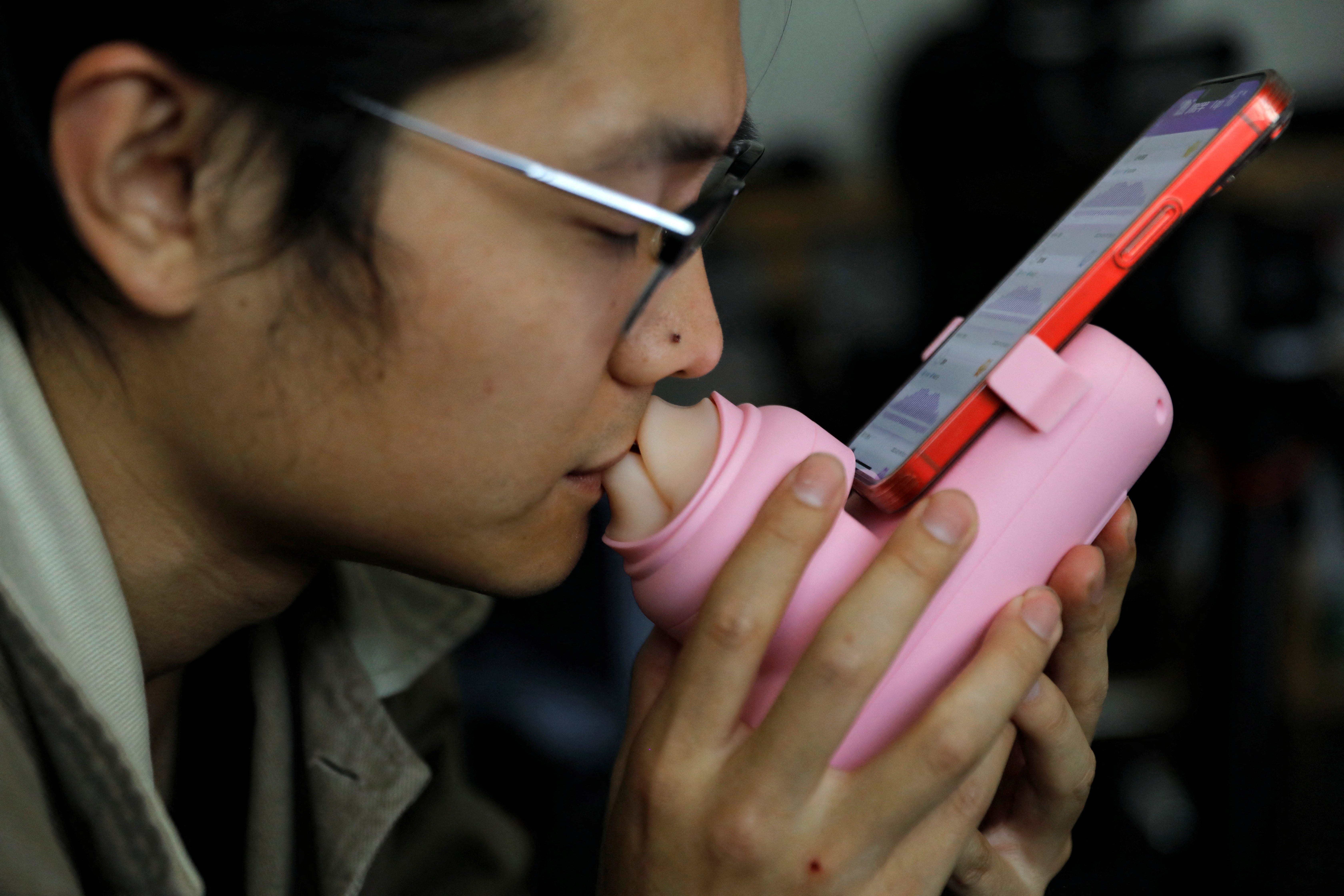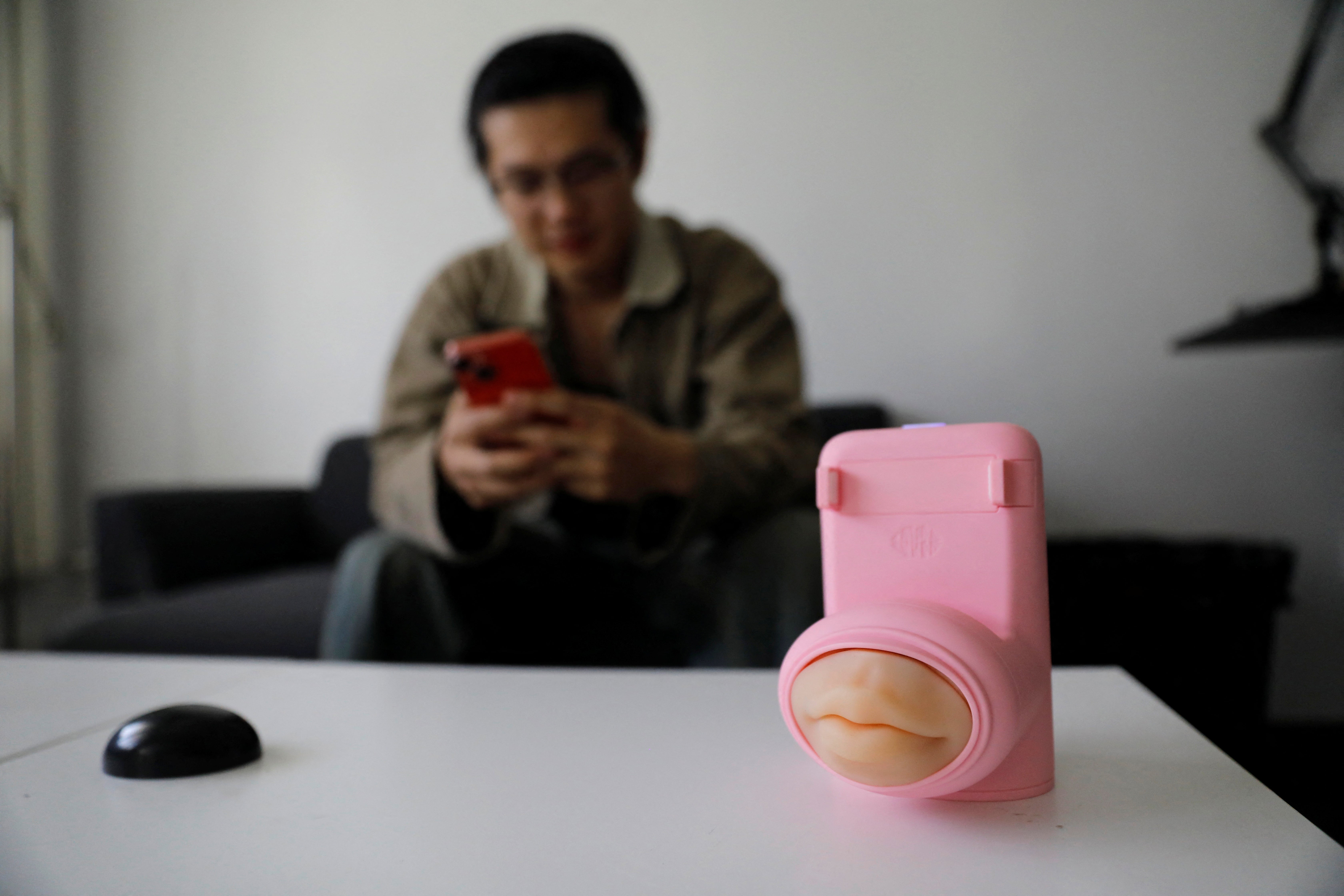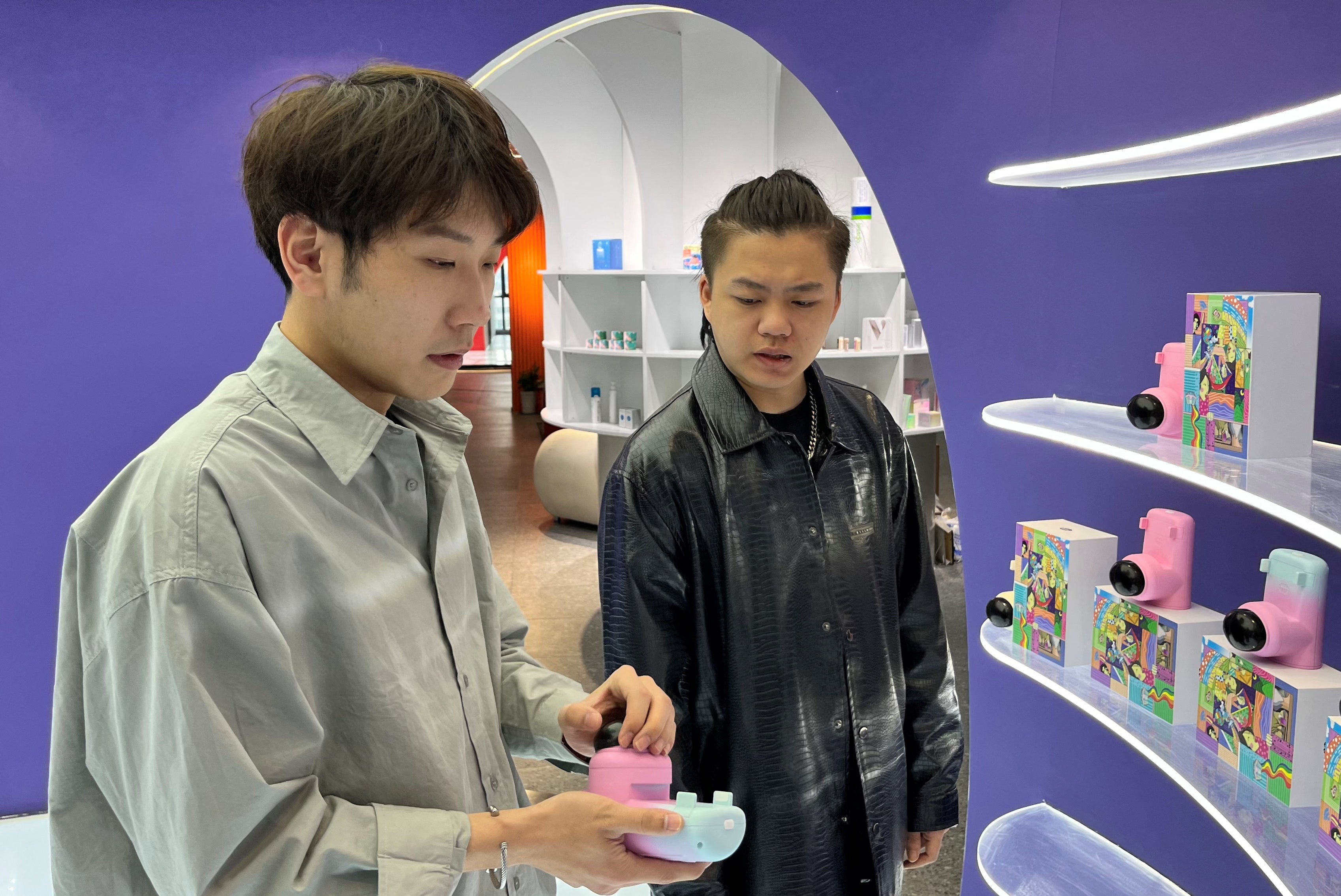Can a machine replace a kiss? Chinese start-up’s new invention raises eyebrows and excitement
Main issue users have with fast-selling device is the lack of a tongue

Your support helps us to tell the story
From reproductive rights to climate change to Big Tech, The Independent is on the ground when the story is developing. Whether it's investigating the financials of Elon Musk's pro-Trump PAC or producing our latest documentary, 'The A Word', which shines a light on the American women fighting for reproductive rights, we know how important it is to parse out the facts from the messaging.
At such a critical moment in US history, we need reporters on the ground. Your donation allows us to keep sending journalists to speak to both sides of the story.
The Independent is trusted by Americans across the entire political spectrum. And unlike many other quality news outlets, we choose not to lock Americans out of our reporting and analysis with paywalls. We believe quality journalism should be available to everyone, paid for by those who can afford it.
Your support makes all the difference.Howard Wolowitz, one of the main characters from The Big Bang Theory, was depicted in the sitcom as having successfully invented a device that could simulate the feeling of being kissed by someone else.
Now it turns out that a Chinese start-up has translated the idea of the character – who was always hungry for physical affection from the opposite sex – into real life.
Meet MUA, the long-distance kissing machine that has taken the tech world by storm and was inspired by the isolation and lack of physical intimacy experienced by many during lockdowns in China.
Developed by Beijing-based Siweifushe, MUA uses motion sensors hidden in silicon lips to collect “kiss data” from a user, which is then transmitted to the device of a receiver, allowing the person to experience the sensation of being kissed in real time.
Named after the sound people commonly make when blowing a kiss, MUA is more than just a simple transmission device. It also captures and replays sound and warms up slightly during kissing, making the experience more authentic.
As authorities forbade residents from leaving their apartments for months on end, Siweifushe founder Zhao Jianbo found himself unable to meet his girlfriend in person, sparking the inspiration for the MUA.
“I was in a relationship back then, but I couldn’t meet my girlfriend due to lockdowns,” said inventor Zhao Jianbo.
Mr Zhao was then a student at the Beijing Film Academy and was focusing his graduate project on the lack of physical intimacy in video calls. His research led him to establish Siweifushe, that counts MUA as its first product, on 22 January.

Priced at around 260 yuan (£30), the device became an instant sensation, selling over 3,000 units and receiving about 20,000 orders just two weeks after its launch.
The MUA resembles a mobile stand with realistic pursed lips protruding from the front. A user will have to download an app onto their smartphone and pair the kissing machine which has to be plugged onto the phone’s charging port.
The user must activate the device using the app and, when they kiss the contraption, it kisses back.
The device is available in several colours though with the same unisex lips. While some users found the device intriguing, others were left feeling uncomfortable, with many citing its lack of tongue as a top complaint.
As with any new technology, concerns have arisen about potential misuse, especially regarding online erotic content, which is strictly regulated in China

Mr Zhao said his company complies with regulations, but “there’s little we can do as for how people use the device”.
Although MUA is not the first device of its kind, it represents the increasing number of innovations trying to bridge the physical gap in human relationships as our world becomes increasingly interconnected yet distant.
The Japanese “kiss transmission machine”, invented by researchers at Tokyo’s University of Electro-Communications in 2011, was an early attempt at long-distance intimacy. Malaysia’s Imagineering Institute followed suit with the “Kissinger” in 2016.
While the concept of a kissing machine did not seem out of place as a gag in a sitcom, some have been left wondering if such devices can truly replace human touch and alter the definition of long-distance relationships.
Additional reporting by agencies



Join our commenting forum
Join thought-provoking conversations, follow other Independent readers and see their replies
Comments